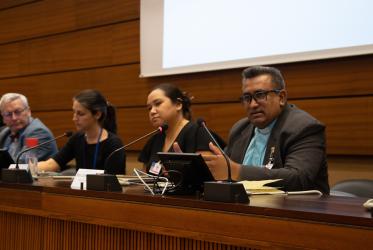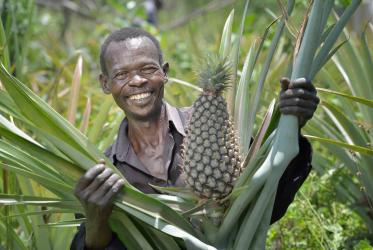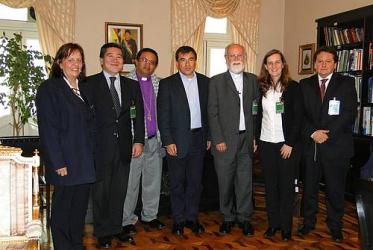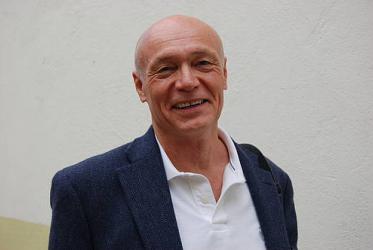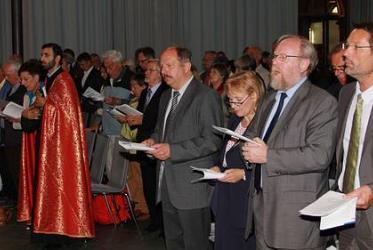Displaying 1 - 12 of 12
Statement on global economy delivered to Bolivia
15 January 2013
Christian leaders “fast for fair food”
02 March 2012
Sustainable water projects need ownership
28 October 2011
Time for Creation 2011: A call to pray, reflect and act
14 September 2011
Human trafficking: violence against humanity
22 May 2011
WCC president joins call for action at G20 summit
21 September 2009
